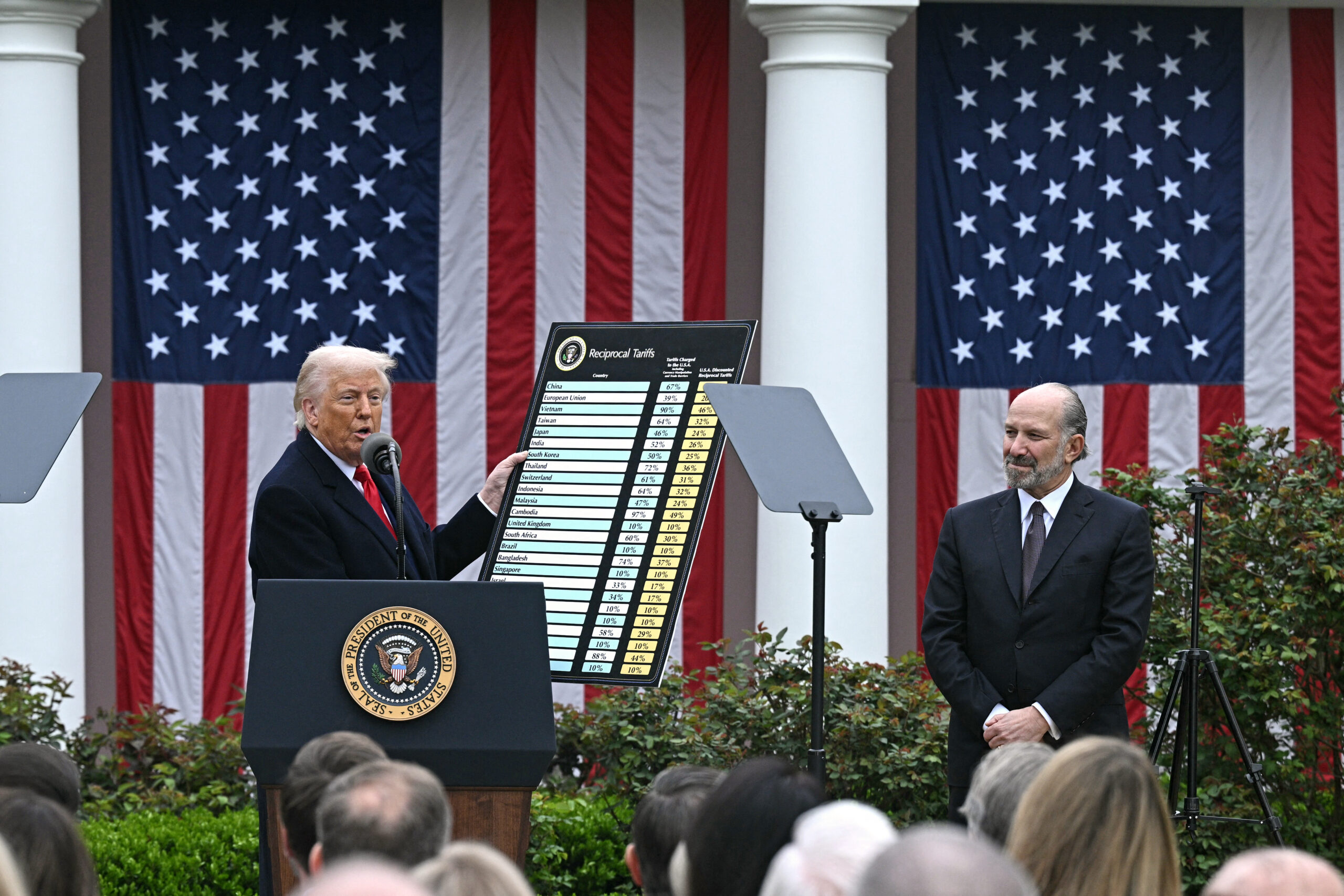- April 8, 2025
Latin America dodged Trump’s harshest tariffs, but region will still hurt

But after speaking with several experts — including some who have been proud Trump supporters — I can’t help but conclude that Trump’s trade wars will leave no winners. A looming U.S. recession threatens to drag down the global economy, reducing exports across the board. That’s just one of several reasons why no Latin American country has reason to celebrate.
Trump’s April 2 announcement included much higher tariffs than economists had expected. Vietnam got a staggering 46%, China 34%, South Korea 26%, Japan 24% and the European Union member countries 20%.
By comparison, Mexico and Canada were exempted from the new import taxes, although they are still subject to a 25% tariff that Trump had imposed on some of their products last month. Meanwhile, Argentina, Brazil, Chile, Colombia, Peru and other countries in the region got a comparatively lower tariff of 10%.
Mexican President Claudia Sheinbaum celebrated Mexico’s “preferential treatment” under Trump’s new tariffs. She said that her country avoided additional tariffs thanks to “the good relations” between the Mexican and U.S. governments.
Some Latin American analysts see Trump’s tariffs as an opportunity for the region to gain a competitive edge in global trade. With lower duties than those imposed on China, Southeast Asia or Europe, Latin American goods may become more attractive in the U.S. market, they say.
In addition, optimists in Latin America argue that Trump’s tariffs could drive new investments into the region by shifting the world economy from “globalization” to “regionalization.” With Asian goods facing exorbitant U.S. tariffs, companies may relocate some of their factories from Asian countries to Mexico and other Latin American countries to export more competitively, they argue.
But Marcelo Giugale, a professor of international economics at Georgetown University and former senior World Bank official, warned me against misplaced optimism: “The fact that you did better than others doesn’t mean that you did well,” he told me. He added that uncertainty surrounding Trump’s policies will freeze value chain investment plans at least until he leaves office. “Nobody wants to invest without knowing whether they can export to the U.S. market,” he said.
A global recession will hurt virtually all countries, he added. The JP Morgan investment firm now projects a 60% chance of a U.S. recession this year.
Also, while Trump’s 10% baseline tariff for most Latin American countries is much lower than those levied against China or Vietnam, many Latin American countries were only paying 2% or 3% U.S. tariffs before. Their products will now become more expensive in the United States, Giugale added.
Alberto Bernal, global strategy director of XP investments, who has been an enthusiastic Trump supporter, told me that the new U.S. tariffs “will lead to a U.S. recession, no doubt about it.”
He projects that the U.S. economy will shrink from a 2.7% growth rate last year to 1% or less this year. Others are even more pessimistic: Nomura Securities International expects the U.S. economy to expand only 0.6% this year, and Barclays PLC projects a 0.1% contraction.
“The way the (Trump) administration calculated its ‘reciprocal’ tariffs is absolutely crazy,” Bernal told me. “Nobody in academia would have arrived at such figures.”
Brazil and to a lesser extent Argentina may be able to compensate for some of their losses with greater soybean exports to China. The Chinese regime has retaliated against Trump’ s tariffs by drastically reducing its own purchases of U.S. agricultural products, and may start buying more soybeans from Brazil, economists say.
Many friends have asked me why Trump started his global trade war, considering that most serious economists had warned — correctly — that it would trigger a stock market crash, and lead to U.S. consumers to pay more for everything from cars to vegetables.
The most likely explanation is that Trump’s obsession with tariffs is not related to trade, but to power.
By imposing exorbitant taxes on foreign goods, he has everybody — foreign countries, big corporations and even U.S. trade unions — at his feet, each begging for exemptions for themselves. And he alone can decide who deserves a reprieve, and who doesn’t.
In the meantime, Latin Americans who celebrate a temporary reprieve under Trump’s tariff wars risk overlooking the bigger picture: a possible global recession that will spare no one — not even the United States.

